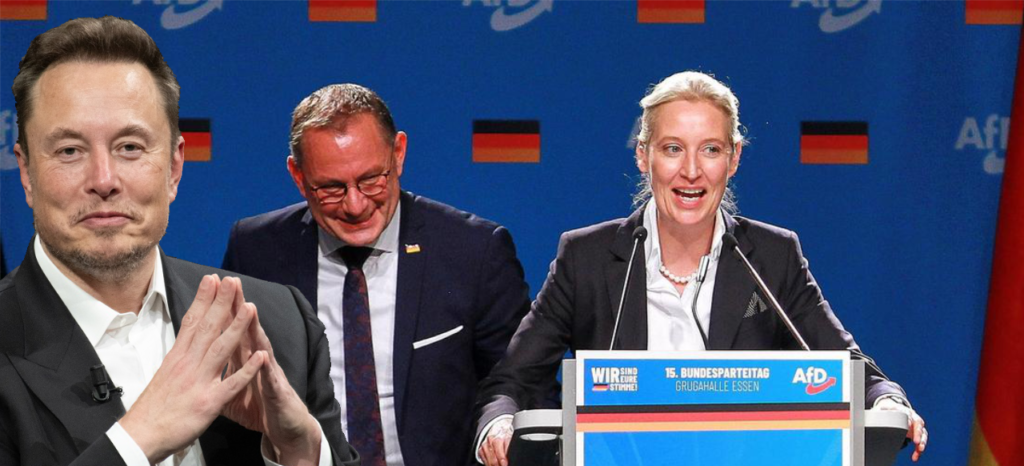Table of Contents

Elon Musk’s Support for Germany’s AfD Sparks Controversy Ahead of National Election
Potential Live Interview with AfD Leader Alice Weidel
Elon Musk is reportedly set to host Alice Weidel, the leader of Germany’s far-right Alternative for Germany (AfD) party, in a live interview on X, his social media platform. The event, expected to take place on January 10, comes weeks ahead of Germany’s national election on February 23.
A spokesperson for the AfD confirmed that Weidel is in contact with Musk’s office but provided no additional details. Musk hinted at this encounter in December, stating that when the discussion happens, critics would “lose their minds.”
Musk’s Endorsement of the AfD
Musk publicly endorsed the AfD in December, drawing criticism from across Germany’s political spectrum. The party, known for its anti-immigration and anti-Islamic policies, has been classified as a right-wing extremist group by German security services. Mainstream German parties have collectively refused to collaborate with the AfD, viewing it as undemocratic and dangerous.
Criticism of German Leadership
In recent months, Musk has expressed strong opinions about Germany’s political leaders. He called Chancellor Olaf Scholz an “incompetent fool” and demanded his resignation following a car attack at a Christmas market. Musk also referred to President Frank-Walter Steinmeier as a “tyrant” for his criticism of the AfD.
Broader Political Influence in Europe
Musk’s support for far-right and anti-establishment movements extends beyond Germany. He has also voiced support for Britain’s Reform Party and has been increasingly vocal about libertarian economic policies and opposition to immigration in Europe.
Political and Public Reactions
German leaders have condemned Musk’s involvement in the country’s politics. Chancellor Scholz emphasized in his New Year’s address that the upcoming election would be determined by voters, not billionaires. This sentiment reflects growing concerns about the influence of high-profile figures and social media platforms on democratic processes.
Implications of the Interview
If the interview proceeds, it could elevate the AfD’s visibility and further polarize the German political landscape. The event also raises questions about the role of global tech moguls in shaping national politics and the ethical responsibilities of social media platforms in political discourse.